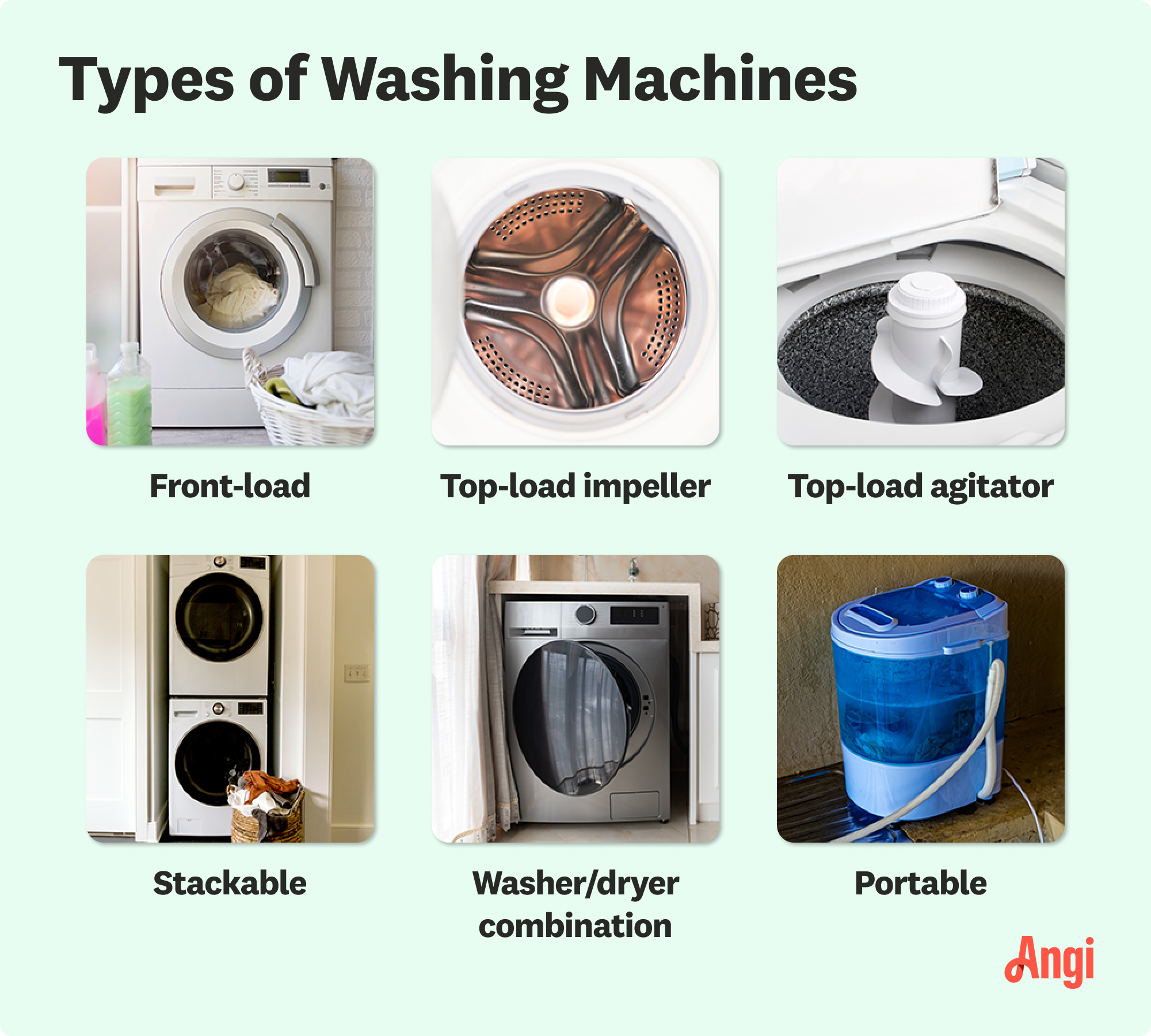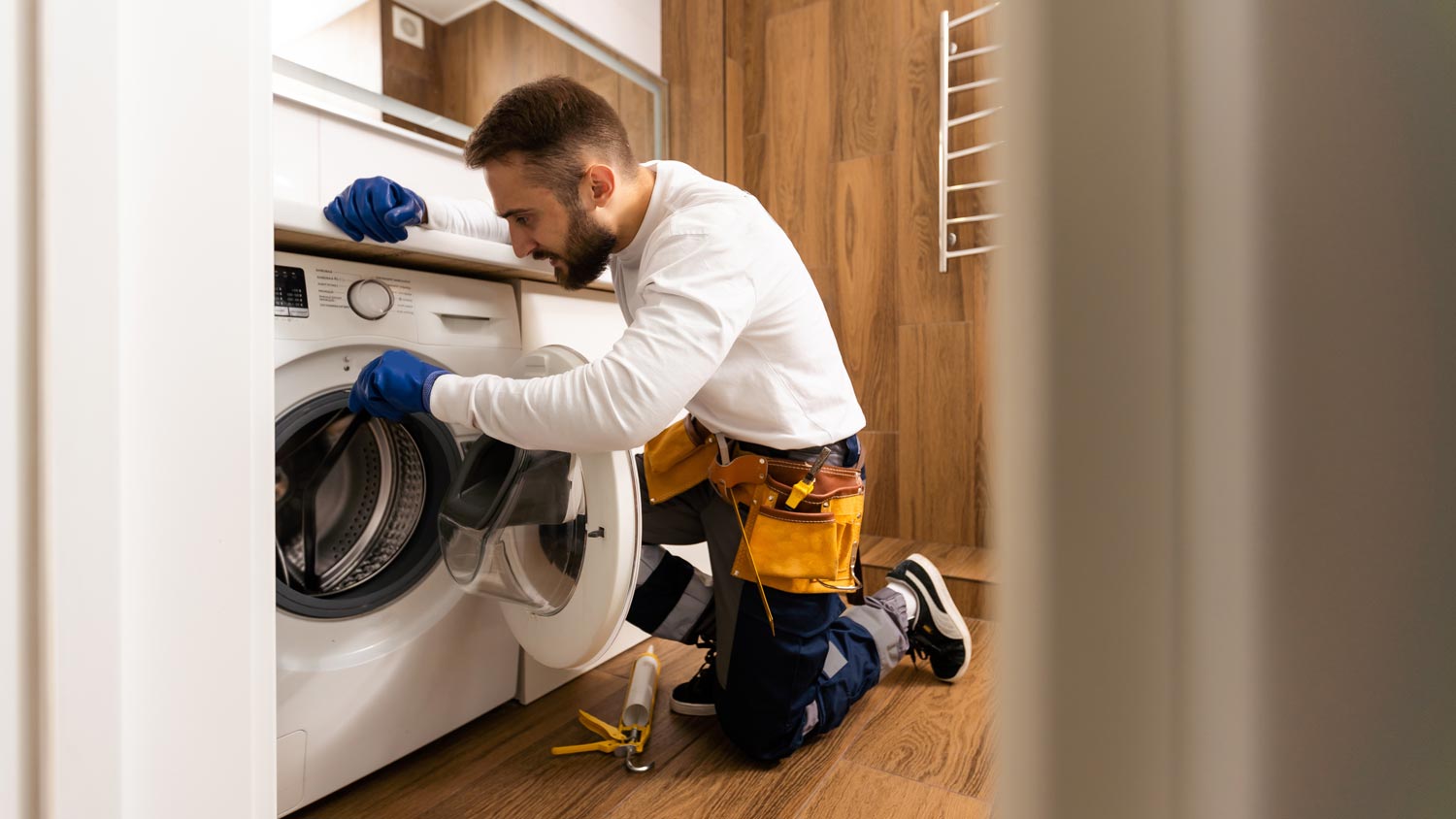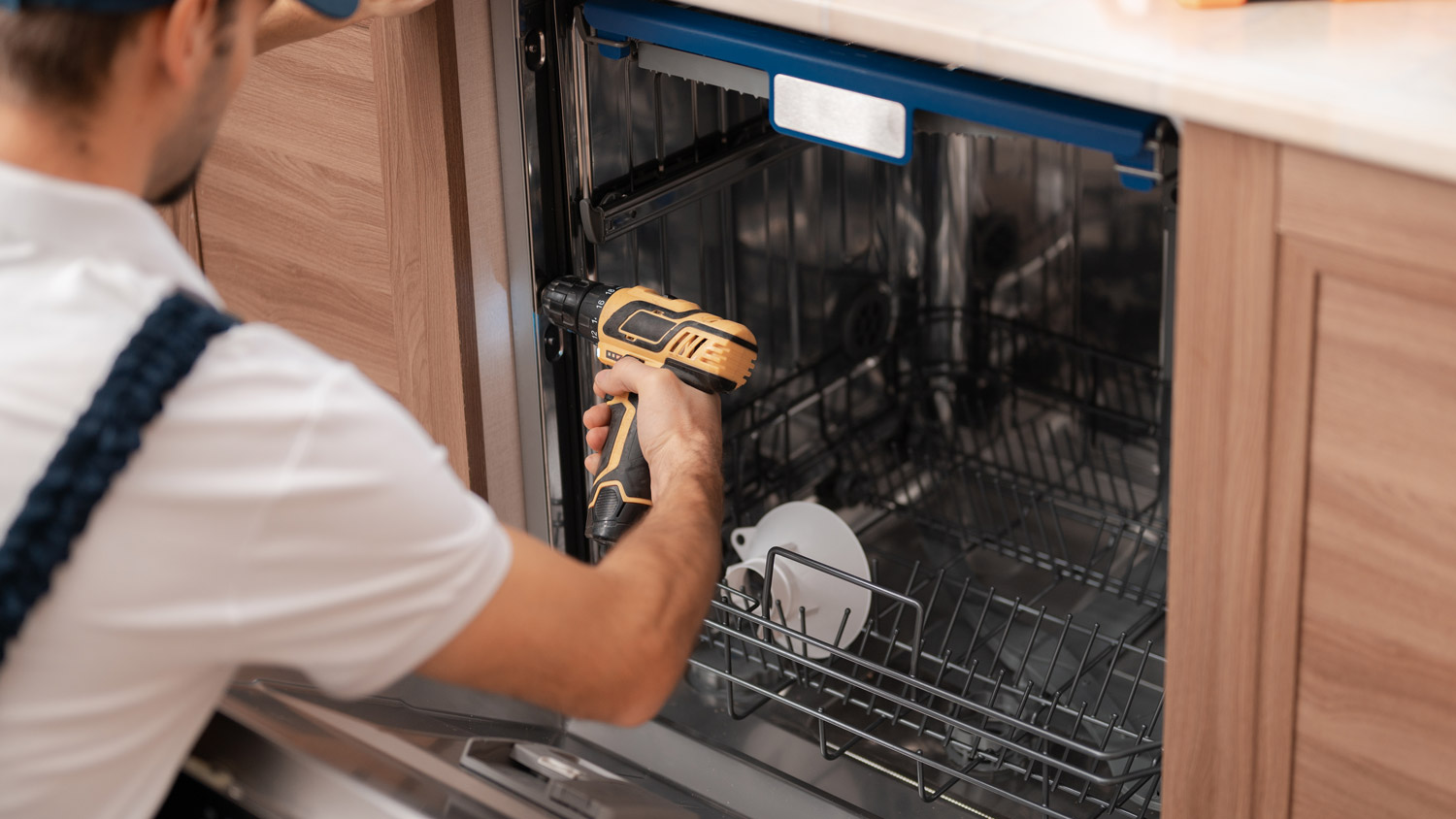
Get transparent refrigerator repair cost info. Learn what impacts price, compare repair vs. replacement, and find ways to save on your fridge repair.
Washing machine repair techs will have your wash running in no time


Although some appliances may lend themselves to easy DIY repairs, tackling a washing machine repair can be too complex for most people. So, who fixes washing machines? You’ll want to hire a washing machine repair specialist to fix this key appliance. This type of technician has the know-how and experience to repair washers of any age and type.
If you’re wondering who to call to fix a washing machine, a local washing machine repair pro can offer several benefits.
Quick diagnosis: A repair professional will have the experience to narrow down the possible causes of the problem quickly, meaning repairs can start faster.
Diagnostic tools: Washing machine repair pros often have diagnostic tools that connect to the machine to track down the problem faster. They also can decipher any error codes the machine displays.
Less trial and error: If you’re doing a DIY washing machine repair, you may use trial and error to find the problem, which can quickly become pricey. Professionals can figure out the problem more accurately the first time.
Guaranteed work: Washing machine repair technicians may offer a guarantee of the repairs they do for a period of time. This gives you peace of mind about the quality of the repair.
Advice: A repair pro can advise on whether to repair or replace appliances like a washing machine. If the repair estimate is close to the cost of a new machine, the specialist can give you expert advice on what to do.

Although you can DIY a washing machine repair, it may not be easy. In addition to struggling to diagnose the problem, you may not have the right tools to reach the broken parts.
If you don’t have a thorough understanding of the parts of a washing machine, you may struggle to figure out what you’re looking at when you open the machine. This makes it extremely difficult to fix the appliance properly.
For example, if your washing machine is not spinning, you may need to find and test the lid switch (or door lock switch), drive belt, motor, and drain pump. If you aren’t sure how to access these parts, you’re better off calling a pro for an accurate diagnosis and a quick fix.
An average washing machine repair costs $180, so you’d save about that much if you DIY the job. However, you can potentially save money in the long run by hiring a pro, rather than buying random replacement parts in a trial-and-error diagnosis process.
Who fixes washing machines beyond a washing machine repair person? A local appliance repair company can often do repair work on a washing machine, even if the company doesn’t specialize in laundry appliances.
As long as the appliance repair pro has the right tools and diagnostic capabilities to work on a washing machine, this versatile tech can do the job successfully.
If your washing machine has an unusual brand or a nontraditional design—like a washer-dryer combo machine—you may want to stick with a company that specializes in washing machine repair.

When you hire repair professionals who fix washing machines, how do they do it?
The repair technician will start by running diagnostics on the machine, if your model has this capability. A WiFi-enabled machine may be able to transmit error codes to the technician. Otherwise, the machine may show error codes on the display screen.
Based on the diagnostics and error codes, the repair pro narrows down the potential problem. The tech then runs a few tests to figure out exactly which part is broken or if the machine simply needs some specialized cleaning and maintenance.
If the technician has the right part on the truck, the repair can happen immediately. Otherwise, if the tech must order a replacement part, the repair may need to occur several days later.
The repair professional knows how to prepare for potential leaks out of the machine during repair tasks, keeping any mess to a minimum.
From average costs to expert advice, get all the answers you need to get your job done.

Get transparent refrigerator repair cost info. Learn what impacts price, compare repair vs. replacement, and find ways to save on your fridge repair.

Discover the average dishwasher installation cost, key price factors, and tips to save on your project. Get transparent, expert-backed estimates.

Installing a gas dryer can help you save on your monthly energy bills. Depending on whether you need a new gas line, gas dryer installation costs will vary greatly.

Whether a small or deep scratch, follow these simple steps to remove scratches from stainless steel to keep your appliances shining.

Unsure who to hire to install your range hood? Learn about the different professionals to consider and find the right one for your project.

Learning how to remove an oven door makes it easier to clean or repair it. Follow these steps to remove your oven door without damaging it.